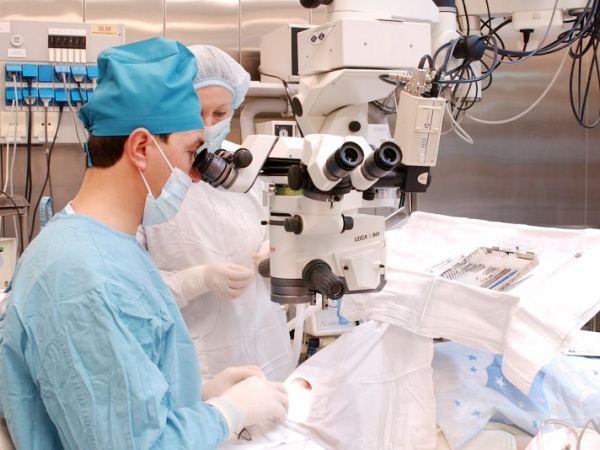The Kazakh Research Institute announced recently that it has expanded its range of diagnostic and treatment services at its recently opened Astana branch and has purchased 400 million tenge (US$2.2 million) worth of modern equipment to increase its utilisation of innovative technologies in medical treatment.
 The improved treatment and equipment will allow vitreoretinal surgery, which is one of the most difficult types of eye surgeries and had previously only been available in Almaty, to now be available in Astana through a free medical care programme.
The improved treatment and equipment will allow vitreoretinal surgery, which is one of the most difficult types of eye surgeries and had previously only been available in Almaty, to now be available in Astana through a free medical care programme.
The capital city now has its own specialised laser centre equipped with a femtosecond laser used for refractive surgery anomalies treatment, such as myopia, hyperopia and astigmatism.
“Today, we are able to provide high-tech medical assistance and make it available for every citizen of the country. We have a highly qualified staff, as we invited seven leading surgeons from Almaty to Astana, and innovative equipment and we are ready to realise what has been planned,” said Chairman of the Board of the Kazakh Research Institute Tursungul Botabekova.
The institute conducts around 35,000 consultations, 13,000 operations and 5,000 laser surgeries every year. After the acquisition of new equipment, these figures are expected to grow significantly. The structure of the branch includes adult and children’s departments, day care, a consultative and diagnostic department, a laser centre and a laboratory for ophthalmologists training courses.
The new institute branch will also become a platform for coming scientific forums and a meeting organised for the Kazakhstan Association of Ophthalmologists on diabetic retinal lesions was held in the frames of the opening ceremony of the branch. According to Eduardo Midena of Italy, who is a member of the ophthalmologists association as well as a professor and secretary general of the European College of Ophthalmologists, the institute’s equipment meets international standards and the institute has professionals capable of using the equipment. He praised the efforts of the branch for its work in pediatric retinopathy, noting that only a nation that cares about the health of its children may have a future.
